The term “turning point” is stolen – just like the slogan of a cosmetics company in the 1980s. But it’s not too far-fetched for the developments on the labor markets that we are currently facing. And the turnaround requires a change of strategy in HR work – and also in the people strategy of every company.
I spent many years in large companies working on employee communication (aim: cultural change via internal media) and employer branding. Both were communication functions that were the “little brother” of “big” corporate communication: marketing, PR, advertising, brand communication. This is where the big budgets were, this is where the strategies were developed: Employer branding was a procurement market, employee:internal communication at best held a dialog with employees and explained HR tools. Or ‚court reporting‘.
The turning point we are experiencing is simply the shortage of skilled workers.
This is caused by demographic trends: the next generation is almost half the size of the boomer generation. It’s not just daycare centres, nursing homes and bakeries that are running out of employees – all organizations are.
The side effect: young people can choose their jobs and they do so according to new (their own) criteria. Is the working environment right? What are the opportunities for development? Can I help shape things? Will I be supported? Can I identify with the product? Is the corporate culture right? Does everything fit in with my values, my life model? Is the purpose right? And thanks to digitalization, they also have every opportunity to find out beforehand or quickly change employers again. Generation Y/Z have a sense of “coherence” and are less willing to suffer. Using communication tools to create an employer brand that does not correspond to the reality of the company simply no longer works.
What is needed is an authentic “employee experience” that is holistic and sustainable – in other words, the corporate culture explicitly becomes a “selling point”. As change managers, we know that corporate culture cannot be “created” in the short term with a few measures. Anyone who promises this is dubious. The corporate culture must fit the industry and the product and still stand out from the competition as something special. Purpose must not be “constructed”, but must be authentic – or you can leave it alone and focus on other employer aspects. If special target groups such as people with a migration background or skilled workers from abroad are added, the entire toolbox of the company’s attractiveness must also explicitly address these target groups.
The brand image must support and reinforce this profile. Values must be lived explicitly – and express the company’s individuality. And this has facets that have nothing to do with communication: Organization, processes, employment conditions, leadership, attitude, history and identity.
Corporate culture is also supported by the (flat?) organization and the (simple?) processes. The management culture must support and promote these values and structures. Gen Y&Z need a lot of attention in management – but at the same time a lot of freedom. And the employment conditions (role descriptions, job design, comp & ben models) must support and enable this corporate culture. Consistency is also required here.
What you see is what you get!
Employer branding that can build on such structures and cultural elements will be successful in the future. And not only attract the right employees, but also retain them. A brand identity that creates a coherence between product, company, culture, values and business model will be perceived as holistic and sustainable. The prerequisites for this are appropriate budgets, resources and, above all, management’s awareness of the importance of internal factors for the company’s success.
In practical terms, this means:
1. Employer branding communication is becoming more important alongside customer marketing – the two must be integrated.
2. Communication professionals must work closely with other transformation professions such as organizational development or HR/people & organizations.




